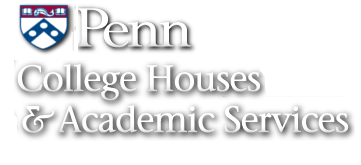
One of the greatest benefits of the College House system is the opportunity to live with students and faculty who share a passion for a particular subject. Program Communities (PCs) are living-learning environments that provide such an opportunity. Membership in a PC is completely voluntary and requires a special application process — most often an essay and perhaps House-specific requirements.
Types of Program Communities:
Program Communities (PCs) are thematic programs designed by College Houses & Academic Services to provide a living-learning environment concentrated on a shared interest of the residents. These programs have, for the most part, begun with student-created and directed activities that, over the years, have developed into established, long-running Program Communities.
Student Designed Communities give a group of upperclass students who are interested in a particular topic the opportunity to live together as a Program Community focused on their mutual interest. Applications for a one-year Student Designed Community are accepted annually.
Penn Course Communities are Program Communities designed as the residential component of an academic program within one of the undergraduate schools at Penn. Members of these highly selective and intensive academic programs are housed within a Program Community that is designed to support the work being done within that program. The Penn Course Communities currently include the Huntsman Program for International Studies and Business, and the Benjamin Franklin Scholars program.
College House Course Communities are residentially based courses for credit. Students live together and earn credit for their residential experience. The College House Course Communities currently include Film Culture, Language & Culture Program, and Music & Social Change.


 Search
Search

